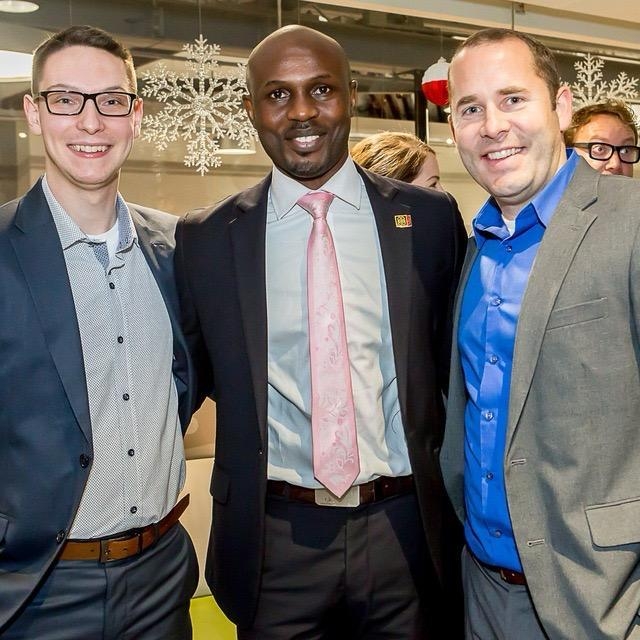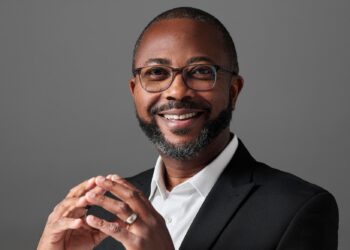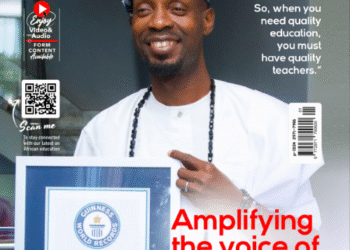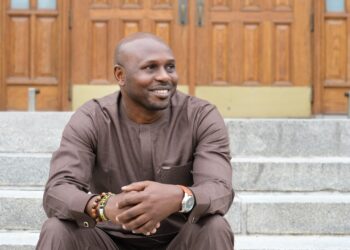Who is ? And tell us about your African-Canadian journey.
Ayo Daniel Makanjuola is an accomplished finance professional and community leader, holding multiple esteemed qualifications, including CPA (Canada), ACCA (UK), ACA (Nigeria), and PMP. His extensive expertise spans across the finance sector, where he has excelled in both private and public organizations, notably within the Black Business Initiative Society in Halifax, Nova Scotia. Here, he serves as Chief Finance Officer (CFO), playing a pivotal role in managing financial operations, engaging stakeholders, and leading key initiatives aimed at empowering Black Canadian communities through capacity building and sustainability projects. His adeptness in financial reporting, budgeting, and strategic planning has contributed to the success of numerous initiatives across Canada. He has worked as the CFO for Millbrook First Nation, an Indigenous community, and oversees nearly 16 entities with an annual budget of $70 million and assets totaling $200 million from 2022 to 2024. He has recently been appointed Vice President of Finance and Administration at Saint Mary’s University in Halifax, Canada.
Ayo’s African-Canadian journey is marked by his remarkable progression from Nigeria, where he laid the foundation of his career with degrees in accounting and an MBA in Finance. His early career in Nigeria involved critical roles in finance and audit, and working with major stakeholders. Transitioning to Canada, Ayo continued to apply his leadership in finance, notably within indigenous and non-profit sectors, where his impact has been transformative. He has successfully managed budgets, led strategic financial restructuring, and streamlined processes that foster financial sustainability.

Beyond his professional contributions, Ayo is deeply involved in his community, serving on various boards like the YMCA Greater Halifax/Dartmouth, Ecology Action Centre Halifax, Nova Scotia Community College Foundation, Halifax, The Not-for-profit- Advisory Committee of the Canadian Accounting Standard board, The Canadian Feed The Children, Ontario, and the Chartered Professional Accountants of Nova Scotia, where he is presently the Chair of the Board, the first Nigerian- Canadian to do so. His journey exemplifies resilience, adaptability, and a passion for both financial excellence and community upliftment.
How did you navigate the cultural adjustment process and settling into the Canadian way of life?
As an immigrant from Nigeria to Canada, navigating the cultural adjustment process was a journey of learning, adaptation, and resilience. Coming from a country with unique customs, values, and social norms, transitioning into the Canadian way of life required a conscious effort to embrace the differences while holding onto my cultural roots.
One of the first things I did was to observe and understand the social dynamics here. Canadians are known for their politeness and respect for personal space, which contrasts with the more communal and expressive nature of Nigerian culture. I had to adapt to subtler communication styles, recognizing that what might be seen as assertive back home could be interpreted differently in a Canadian context. It was essential to become aware of these nuances, especially in professional settings.
On the professional front, I had to familiarize myself with the Canadian work culture, which tends to emphasize collaboration, work-life balance, and inclusivity. These concepts are approached differently in Nigeria, where hierarchy and direct management are often more prominent. Adapting to a more horizontal leadership style and understanding the expectation for workplace diversity and inclusion helped me succeed.
I also had to face practical challenges, such as navigating the Canadian job market, where local experience is highly valued. I tackled this by taking courses to upgrade
my qualifications, networking with professionals, and volunteering to gain relevant Canadian experience. This was critical in ensuring that my skills were recognized and valued.
Lastly, embracing the Canadian climate was another significant shift, as winters here are far more intense than in Nigeria. But over time, I learned to prepare for and appreciate the seasons, discovering the joys of winter activities and how to cope with the colder months.
In summary, my cultural adjustment process involved patience, openness to learning, and a deliberate effort to integrate into the community. By blending my Nigerian heritage with Canadian values, I’ve been able to successfully settle and thrive in this new environment.
Canada offers vast education and career opportunities. How did you face the hurdles of your initial credentials from Africa?
I approached the challenge with optimism, always putting forth my best effort. I never accepted defeat and continued to work hard. I also believed and trusted that God would open the right doors at the right time.
How did the African diaspora communities provide you with the much needed social and emotional balance through their community support initiatives?
As a Nigerian immigrant to Halifax, I found the African diaspora communities essential for social and emotional support. Moving to a new country can be overwhelming due to cultural adjustments, climate changes, and settling in. These communities provided a strong sense of belonging and helped me navigate these transitions.

The cultural familiarity offered by these groups was crucial. Engaging with others who share similar backgrounds helped me feel at home. Community events and celebrations, like Nigerian Independence Day, allowed me to connect with my roots. They also provided practical support through local organizations that assist newcomers with housing, employment, and education. Their guidance on navigating the job market and finding African groceries was incredibly helpful.
Emotionally, the diaspora created a space to express the challenges of being away from home. Talking to others who understand helped me cope with homesickness and adjust to my new life. Established African professionals shared valuable advice, leading to growth opportunities.
Overall, the African diaspora communities in Halifax have played a vital role in my transition, providing the support I needed to feel grounded and confident in building my life in Canada.

Did you face any discrimination and racism of any sort that impacted your sense of belonging? And how did the Canadian multicultural policies offer you a sense of inclusivity?
Discrimination and racism are issues embedded in all society. I was able to manage the situation by quickly making adjustments and understanding the importance of networking and community engagement. While I was building my professional career, I realized how integral it was to connect with people outside of work. Canadians highly value community involvement, whether through volunteering, participating in local events, or joining social groups. This was a new aspect for me, but it became an invaluable tool in building relationships and gaining a sense of belonging in my new environment.
Further to your strategic leadership role at the St. Mary’s University, how do you and the rest of the leadership plan to leverage on Canada’s reputation and St. Mary’s University alumni networks.
In my role as Vice President of Finance at Saint Mary’s University, I have gained a deeper understanding of what it means to be a global citizen. Universities, particularly those like Saint Mary’s with strong international connections and a diverse student body, provide a unique platform for addressing global challenges and fostering cross-cultural understanding.

In this role, I am not only tasked with ensuring the financial sustainability of the institution but also contributing to its mission of preparing students for an interconnected world. It has reaffirmed my belief that education is a powerful tool for social mobility and global change. As a finance leader in this sector, I’ve become more attuned to the importance of creating financial structures and policies that support accessibility and equity in education, ensuring that students from all backgrounds have the opportunity to succeed.
This role has also highlighted the necessity of integrating global perspectives into financial strategies. Education today is borderless, with students and faculty coming from every corner of the globe. This diversity enriches the learning environment and, as a leader, it’s my responsibility to ensure that we are financially supporting initiatives that promote inclusivity, global research collaborations, and the exchange of ideas.
On a personal level, my work at Saint Mary’s has strengthened my identity as a global citizen. Halifax, and Canada in general, is a melting pot of cultures, and working within such a diverse community has expanded my appreciation for different worldviews and the need for leadership that transcends borders. I see my role as contributing not just to the growth of Saint Mary’s University but also to fostering a global educational ecosystem that produces leaders equipped to tackle the complex issues facing our world. In essence, this new position has allowed me to integrate my financial expertise with my passion for global education, creating a space where I can contribute meaningfully to both the university and the broader international community.

African students cherish scholarships and financial aid a lot. Can you highlight the scholarships and financial aid opportunities within St. Mary’s University?
I will direct interested students to our website www.smu.ca where they can find all information related to the school scholarship.
As part of your strategic direction at St. Mary’s University, how do you intend to develop partnerships with African educational institutions for localized admissions, support, education fairs and events
We aim to build collaborative partnerships with educational institutions across the African continent. Our team connects with various institutions, and as a member of this community, I want to build upon the excellent work that our outreach team has already initiated. I welcome any institution interested in collaborating to reach out to me at ayo.makanjuola@smu.ca. I would be happy to connect.
What is the advice that you have for potential African migrants considering study in Canada, especially in Nova Scotia?
For potential African students considering studying in Canada, particularly in Nova Scotia, here’s some advice to help you make the most of this exciting opportunity:
1. Choose the Right Program and Institution:
Canada offers world-class education, and Nova Scotia is home to several respected institutions, such as Saint Mary’s University (SMU). It’s important to research programs that align with your academic and career goals. SMU is known for its strong business, engineering, and liberal arts programs, along with excellent support for international students. Look for programs that offer experiential learning opportunities, like internships, co-ops, or research placements.
2. Understand Visa and Immigration Pathways:
Canada has a supportive immigration system for international students. Once you’re accepted into a program, ensure you apply for your study permit on time and familiarize yourself with the Post-Graduation Work Permit (PGWP) program, which allows you to stay and work in Canada after graduation
Nova Scotia also offers pathways to permanent residency through its Provincial Nominee Program (NSNP), making it an excellent choice for international students.

3. Be Prepared for Cultural and Climate Differences:
Nova Scotia is a welcoming province with a diverse and inclusive community, but adjusting to a new culture and climate can still be challenging. Canadians are known for their politeness and respect for different cultures, so you’ll find support here. However, winters can be quite cold, especially if you’re coming from a warmer climate. Prepare yourself mentally and practically for the seasonal changes by investing in warm clothing and learning about winter activities to enjoy the colder months.
4. Build a Strong Support Network:
One of the best ways to adjust to university life in Canada is by getting involved in campus activities and building a network of friends and mentors. SMU has an active African student community and international student services that can assist you in settling in, finding housing, and adjusting to life in Nova Scotia. Joining student associations and participating in cultural events can help you feel more connected and supported.
5. Focus on Career Development:
In Canada, work experience is highly valued, so it’s important to start thinking about your career early. Universities in Nova Scotia, including SMU, offer career services, mentorship programs, and internship opportunities that can help you gain Canadian work experience. This is crucial when transitioning to the job market after graduation. Utilize these resources to build your resume and establish professional connections while you study.

6. Plan Your Finances Carefully:
Studying in Canada requires financial planning. Ensure you understand tuition fees, living expenses, and any available scholarships or financial aid. Many institutions, including SMU, offer scholarships specifically for international students. It’s essential to budget for tuition, housing, food, and other expenses, and to explore all available funding options.
7. Be Open to New Experiences and Growth:
Studying abroad is about more than just academics; it’s an opportunity for personal and professional growth. Embrace the diversity that Nova Scotia offers, both in and out of the classroom. Take time to explore Canadian culture, try new activities, and learn from your experiences. Being open to different perspectives and stepping out of your comfort zone will enrich your time here and help you develop valuable global skills.
In summary, studying in Nova Scotia, especially at Saint Mary’s University, provides African students with a wealth of opportunities for academic and personal growth. By thoroughly researching your options, preparing for cultural and climate adjustments, and taking advantage of the many resources available to international students, you’ll be well on your way to a successful and enriching educational experience in Canada.
Version 1.0.0Version 1.0.0



















































































 EduTimes Africa, a product of Education Times Africa, is a magazine publication that aims to lend its support to close the yawning gap in Africa's educational development.
EduTimes Africa, a product of Education Times Africa, is a magazine publication that aims to lend its support to close the yawning gap in Africa's educational development.